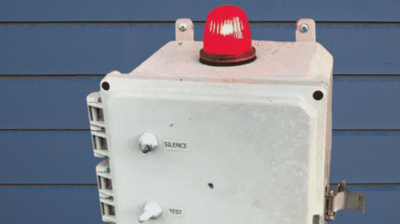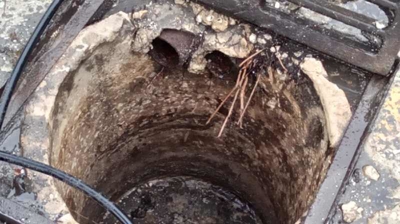Some may argue that the topic of septic system maintenance is better left untouched. Others would consider septic service an art…okay, we are probably the only people that consider it an art. You might have a lot of questions about how your septic system works and maybe you are a little afraid (or embarrassed) to ask. Have no fear, Wind River Environmental has compiled a list of 25 common septic questions are afraid to ask about your septic system!
1) What actually takes place during a septic pumping service?
Wind River Environmental does not just “pump and run”. During a proper septic pumping service your technician will note the overall condition of the system and the levels in tank. Noting the levels will help him to understand if there is a potential issue with the system. Then, he will pump the entire septic tank down, removing all of the liquid and solid waste. Once he is done pumping he will check the inlet and outlet tees to the tank to ensure they are still intact and working properly. If there is a filter present, he will clean the filter of any build up. If you are home at the time of service (totally not required if that’s not your thing) he will ask you to flush your toilets so he can make sure everything is flowing properly. Once the service is done he will return the cover the way he found it!
2) How often do I need to have my septic tank pumped?
Experts say you should have your system pumped every 1 to 2 years but several factors should be considered when deciding how often your septic tank needs to be serviced. You must take into account the age of the system, the number of occupants in your home, the use of a garbage disposal and the amount of laundry being done in the home. Every system is different. What is right for your system may not be right for your neighbor’s. If you have a question about when your septic system should be pumped, give us a call!
3) Should I use a bacteria additive products?
Yes! Bacteria must be present in the septic tank in order to break down and digest the organic solids. Today, households use a wide range of anti-bacterial soaps, detergents and cleaning fluids. While these ordinary household products do a great job killing unwanted bacteria in your home, they also destroy beneficial bacteria that your system needs in order to function properly.
4) Will there be odors while and/or after the septic pumping service?
There can be odors immediately after the septic pumping service, but they should not last long. The odors are usually outside and will disperse a few hours after the septic pumping service. If you are experiencing odors in your home, give us a call. This could be a sign of an impending septic back up!
5) My pipes are starting to drain very slowly, is it the septic system?
Possibly. If your septic has not been serviced in more than 6 months, we would want to service the septic first. If the problem persists, a drain cleaner will then be sent out to clear the line to the septic tank.
6) Is it true I can’t use bleach?
Bleach kills bacteria and your septic system needs to have a healthy supply of bacteria in order to help eat away at the sludge in your tank. Many products we use in our homes today are anti-bacterial, so it is important to REPLACE that bacteria by using our bacterial additives.
7) What is a leaching field?
A leaching field is a series of pipes (usually 20 to 40 feet long) that extend out from your distribution box. These pipes have small holes along the sides that leach out grey water from your septic system. The leaching field pipes are laid over dirt and gravel to help kick start the filtration process which occurs naturally. As the water seeps out of the leach field lines, it will filter through the ground entering into the natural hydrologic cycle of the earth.
8) What is a Distribution Box?
A Distribution Box or D-Box is usually a 2 foot by 2 foot cement box that has 2-3 holes in it which the leach field lines attach to. The distribution box does just that, it helps to distribute the liquid from the tank out evenly along the leach field lines. The distribution box does not need to be pumped at the time of the septic pumping during regular servicing.
9) Why do I have ponding over my septic system?
There are a few reasons you could have standing water in your yard. Your septic tank could be overflowing due to too much rain or there could be a break in your main line. If the ponding is concentrated over the leach field that could mean a leach line is blocked with Bio-Mat and needs to be cleaned and jetted.
10) Why do I have more than one cover?
Most septic tanks have two to three covers; one over the inlet side of the septic tank (where the water from your home enters the tank), one in the center of the tank, and one on the outlet side of the tank (where the liquid from the tank exits to your leach field). The inlet and the outlet covers will be exposed at the time of septic service to best inspect the inlet and outlet lines!
11) Is it okay to use a garbage disposal?
No. Chopped up food particles do not break down in the septic tank and can make their way out into your leach field lines causing clogs. Garbage disposals, even those marked septic safe, are not considered beneficial for your septic system.
12) What is “proper working level”?
Proper working level is where the water level in your tank meets the outlet T of the tank. As water enters your tank it should push water out of your tank through the outlet pipe. Even after one week of septic pumping service, your septic tank should return to a “proper working level” about 1 foot from the top of the tank. Your septic tank will hold liquid in order for the separation of solids and liquid to happen. Only the liquid (or grey water) should flow out to the leach field pipes.
13) What does a septic filter do?
Filters keep the hair, grit and grime from getting out into your leach field lines. A filter goes on the outlet tee of your septic tank and would act as a strainer, keeping all solid large particles in the tank and therefore OUT of your leach field lines.
14) Why would I have odors inside my house?
There could be many reasons why. You’ll have to answer questions, such as has been more than a year since your last septic pumping service or where are the smells coming from, in order to diagnose the problem. It could be that you need your septic tank pumped or it could be a drain issue. The only way to find out is to call your septic company and discuss your issue
15) If I have a clogged drain, is it safe to use products such as Drano?
Over the counter products are a “quick fix” and will not thoroughly clear the drain. Those products are also harmful to your septic tank and will kill off the bacteria needed to break down the solids in your tank. Most likely your drains will continue to clog if you don’t have a drain cleaner come and snake or jet your line.
16) Are there certain cleaning products I need to use if I have a septic system?
It’s recommended to use non-chlorine, non-ammonia, non-antibacterial, non-toxic and bio-degradable cleaning products. Most all-natural cleaners are septic safe. These types of products will not kill off the bacteria in the system.
17) Is it okay to plant flowers or bushes over my leach field?
No. Don’t plant anything over the leach field except grass. Roots can cause major clogs in your leach lines. It’s also important to never cover the septic tank or leach field with asphalt or concrete or other impermeable material.
18) What is okay to flush down the toilet?
Even if items are marked as “septic safe” do not flush them. For example, some baby wipes and cat litter may be labeled this way. It is not good for your septic system to flush anything other than human waste and toilet paper because it does not break down in the septic system correctly.
19) Will energy efficient faucets make a difference with my septic system?
Yes! They are made to save water which will help prevent over taxing the system as well as helping the environment conserve water.
20) Is the white pipe that looks like a candy cane my cover?
No. The candy cane pipe is actually a vent pipe for your septic system to help the gases escape while also allowing oxygen to flow into your system.
21) I’m in the process of selling my home – is it required to have a septic inspection?
In most states it is required to have an inspection done on the septic system for a real estate transaction. It’s best to check with your local Board of Health or town hall since it may vary from town to town or state to state.
22) What do I do if I think I need a new septic system?
First call your septic company and have them perform a proper septic inspection. A licensed inspector is the only one who can say that your system is failing. There could be minor or major repairs depending on the reason why the system has failed.
23) If I can’t afford a new septic system, what else can I do?
Septic companies can assess the condition of your septic system and present you with several options. There are ways to extend the life of and possibly repair your system while avoiding the installation of an entirely new system. There are also options through your town or state that might be available to finance the cost of a new system.
24) What are inexpensive ways to maintain a healthy septic system?
The most inexpensive way to maintain your septic system is to service it regularly. You might think that having it serviced every 1, 2, or 3 years might be a lot, but the cost of service is a lot less expensive than the cost of replacing the system or a component.
25) What is the number one cause of septic system-related issues?
Ignoring your septic system. Schedule regular septic pumping service and stay ahead of any potential issues. This is the best way to prolong the life of your septic system.
There you have it! Hopefully we were able to answer some of your burning questions about your septic system. Did this post just inspire you to learn even more?



.2506260734265.png)
